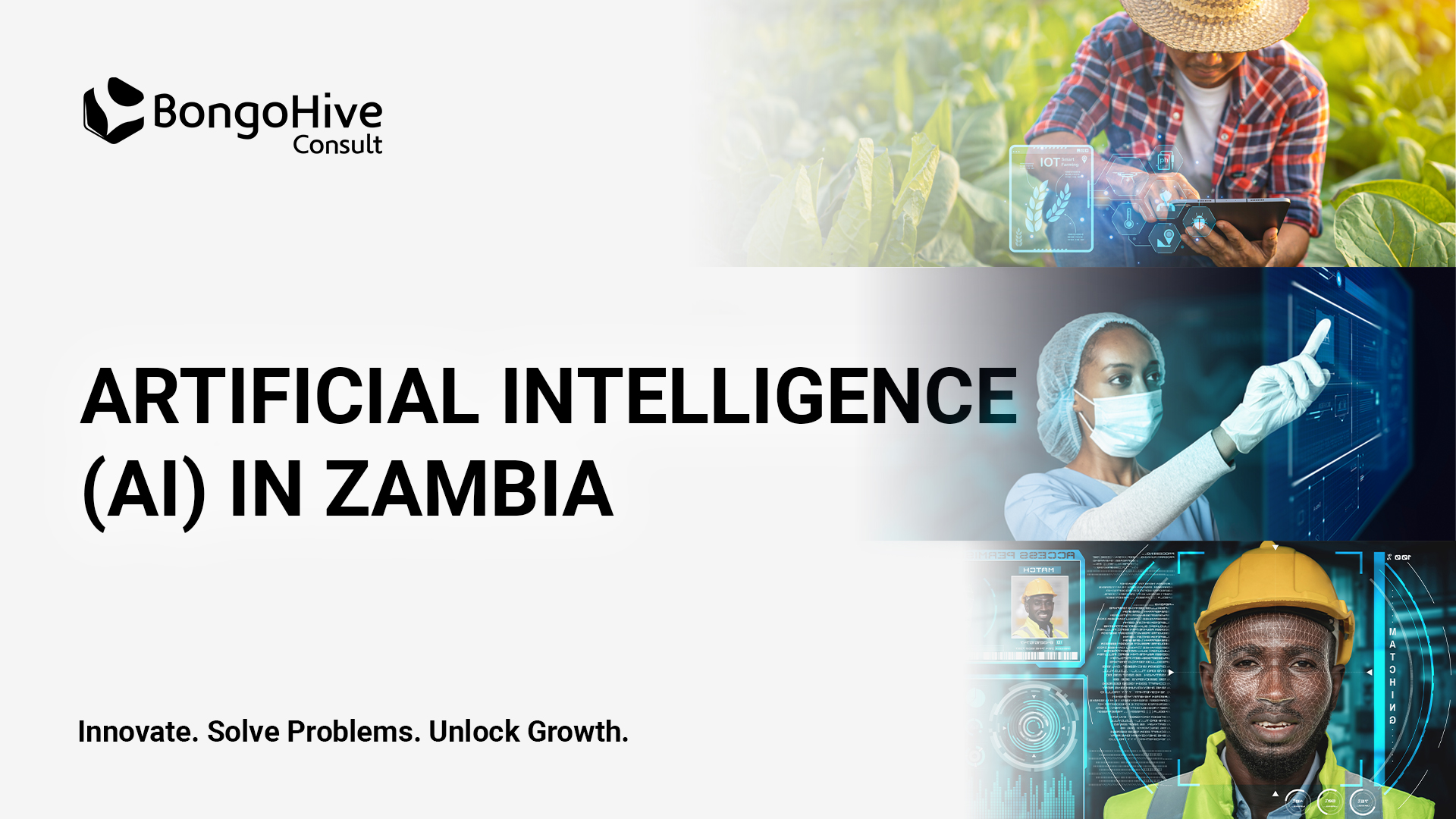
In recent years, the use of Artificial Intelligence (AI) has steadily seen an increase in various sectors of society. AI applications can be found in many aspects of our daily lives, ranging from virtual assistants like Siri and Alexa to recommendation systems used by online platforms. AI is also being used widely in industries such as healthcare, finance, transportation, and manufacturing across the world where we see algorithms analysing vast amounts of data, optimising processes, and assisting in decision-making.
While AI has made significant advancements in recent years, it is still an evolving field with ongoing research and development. As technology continues to progress, the potential of AI to transform various sectors and improve our lives is immense, but it also brings about important ethical considerations and challenges that need to be addressed.
To fully appreciate the impact of AI, it is best to first understand its origin and how it has evolved to become what it is now.
What is AI?
AI is the simulation of the human intelligence process by machines (computers). Computers are trained to process large amounts of data and recognise trends and patterns within the data. Artificial intelligence was first introduced in 1940 by a philosopher by the name of Alan Turing that wanted to describe the human thought process as mathematical manipulation of symbols that resulted in the creation of a programmable computer.
In the year 1956, a workshop was held at Dartmouth College where the attendees believed that machines as smart as human beings would exist one day in the future. However, in 1974 the research process faced many challenges and the committee began to face pressure from the US Congress and the British government which resulted in them pulling out funding for the project. Fast-forward to the 21st century, AI progression has resulted in machine learning advancement and has been implemented successfully in many industries worldwide.
Types Of AI
AI can be categorised into 4 types:
- Reactive AI: This type of AI harnesses no memory capability meaning that input will always have the same outcome.
- Limited Memory AI. This category can store data and make predictions based on collected data.
- Theory of Mind: This section of AI has not been fully explored however it refers to AI systems being able to understand that people have thoughts and feelings.
- Self-Aware AI: This is an advanced AI system that is created to be aware of its feelings as well as its own.
Here are some examples of AI systems:
- Siri (Apple) – an inbuilt private digital assistant that can perform a wide variety of tasks based on user inputs (questions and commands) via chatbot capabilities it poses on all Apple Inc devices.
- Alexa (Amazon) – a virtual assistant that allows users to perform multiple tasks such as playing audiobooks, music playbacks, voice interaction, and other real-time information that one may require.
- ChatGPT- late 2022 saw the development of a chatbot type that enables users to curate and edit images, texts and videos to their preferred format, style, or language. ChatGPT can further be described as a natural language processing tool driven by AI technology systems that allows a user to have human-like conversations. The language model can answer questions and assist with tasks, such as composing emails, essays, and code
- Google Bard – a conversational generative chatbot designed by Google that uses information from the web to assist its users with various tasks such as solving math problems, coding, paraphrasing, and much more.
- Facial recognition systems – biometric software that maps out human facial features using mathematics and stores the information as a faceprint.
- Google Maps – makes use of AI by using historical trends to stimulate and estimate the best route one can take to get to their desired destination given time.
- Tesla self-driving cars – a driving assistant used in cars that carries out tasks such as lane keeping, cruise control, and emergency braking.
Are sectors in Zambia leveraging the use of AI?
With the drive by both the private and public sectors to digitise services in Zambia, there has been an increase in the use of advanced technological tools across all sectors of the economy.
The mining, healthcare, logistics, transportation and logistics, and financial sectors have all seen the usage of AI platforms in a quest to improve service delivery for the people of Zambia.
Health Care Sector
A notable example of the use of AI in the Zambian health sectors is CIDRZ’s partnership with Qure.ai, a breakthrough Artificial Intelligence (AI) solution disrupting the radiology ‘status quo’ by enhancing imaging accuracy and improving health outcomes with the assistance of machine-supported tools. The partnership was used to leverage technology to run tuberculosis (TB) tests in various health posts across the country.
Mining sector
A 150-million-dollar investment by Kobold Metals, a Silicon Valley company, is a recent example of the use of AI in the mining sector in Zambia. The Mines and Minerals Development Minister, Honorable Paul Kabuswe announced the move which involves the use of AI and machine learning to identify battery metal deposits and renewable energy resources at the Mingomba mine.
This investment allows for the discovery of even more copper beyond the 9 million tonnes found already, reducing the uncertainty about the continuity and quality of the existing resource within the country.
In this vein, On the 20th of June 2023, Kobold Metals Inc. Vice President – Technology, Tom Hunt was at BongoHive’s Hive Coworking Space to share how the mining sector in Zambia can integrate technology and renewable energy in its operations.
Transport and Logistics Sector
The transport and logistics sector in Zambia has also embraced the use of AI in its service delivery. The Zambia Road Safety and Transportation Agency (RTSA) has implemented the use of AI in the toll gate systems which incorporates the use of a camera and computer system to quickly note vehicle number plates and record them into a national database as they pass through the toll gates.
Financial sector
Another sector that is utilising the use of AI in Zambia is the Transport and Logistics Sector. With the rise of digital banking, banks such as Stanbic Zambia have not been left behind. The bank announced a project to design an artificial intelligence customer service agent called ‘Stan the Stanbic Guy’ to provide customer support across social media and chat platforms.
FNB Zambia is yet another bank that is investing in AI. The bank partnered with Proto’s Africa to use their AI system called Proto AI to incorporate it into their customer service experience. This chatbot system will allow clients of different ethnicities to communicate and ask questions in their local languages such as Bemba and Nyanja and to get assistance on platforms such as WhatsApp and SMS.
Advantages and Disadvantages of Artificial Intelligence
The use of AI does come with its benefits and risks.
Advantages
- Work Place Efficiency: In the workplace, AI has the advantage of being able to save time. AI systems cut down the time that one spends carrying out repetitive tasks because of the ability to automate activities. AI has proved to be even more helpful because of its increased efficiency and effectiveness. The use of artificial intelligence allows one to focus on more strategic and creative tasks as AI takes over the more manual tasks.
- Automation Features: Further, the automation capabilities of AI technology mean that tasks do not have to be on hold because of the lack of human presence. Organisations are now able to have tasks completed around the clock consequently resulting in more efficiency and increased customer satisfaction.
- Eliminating Human Biases: In addition, AI has the advantage of eliminating biases as it is not affected by both internal and external human forces. This aspect may prove to be beneficial when dealing with situations that require objective actions. This facet of Artificial Intelligence systems can further be utilised when analysing large data sets; being able to learn from data and using this data to predict information that one can use to make an informed decision.
Disadvantages
- Cost: In some instances, AI can be costly to implement as it may require large investments of money to acquire the necessary equipment to run particular software programs and overall equipment.
- Loss of Jobs: In the recent past there has been an ongoing debate on whether AI may have the potential to result in the loss of human jobs as more and more repetitive tasks are increasingly being handled by automated systems, which lowers labour costs for employers by allowing them to hire fewer people.
- Lack of Empathy: This being said, the technology necessary for artificial intelligence to realistically and accurately comprehend human emotions and mental processes has not yet been established and the systems themselves are unable to represent these traits in their work.
Indeed, the conversation on AI will continue to spark debate on how far people can leverage its use without abusing or mishandling its power. This being said, the use of AI platforms across all sectors continues to grow with every advancement in technology and the Zambian economy stands to benefit immensely should stakeholders use AI effectively and efficiently to provide improved services and products.
Are you looking to leverage Artificial Intelligence in your business? Email us at [email protected] and let us help you take your business growth to the next level.
 BongoHive
BongoHive